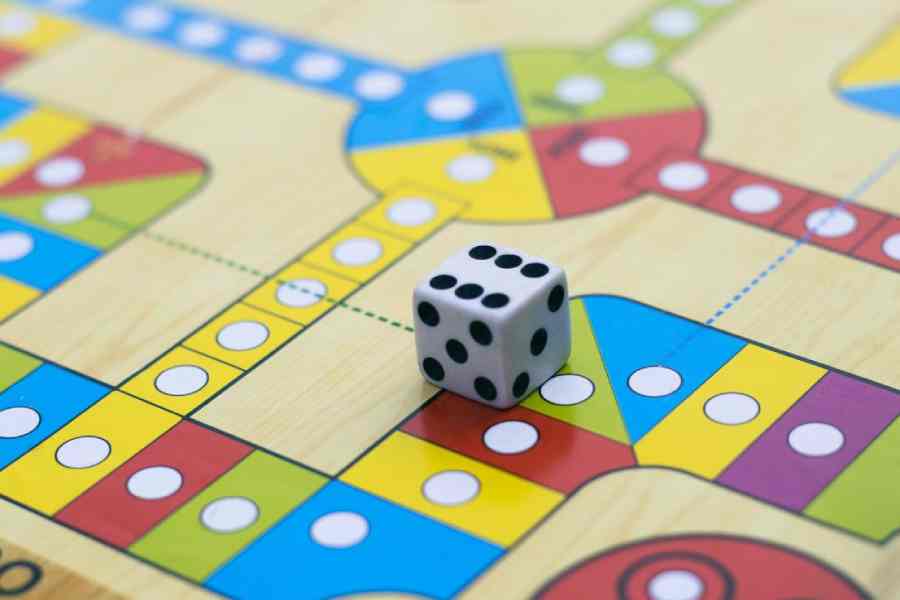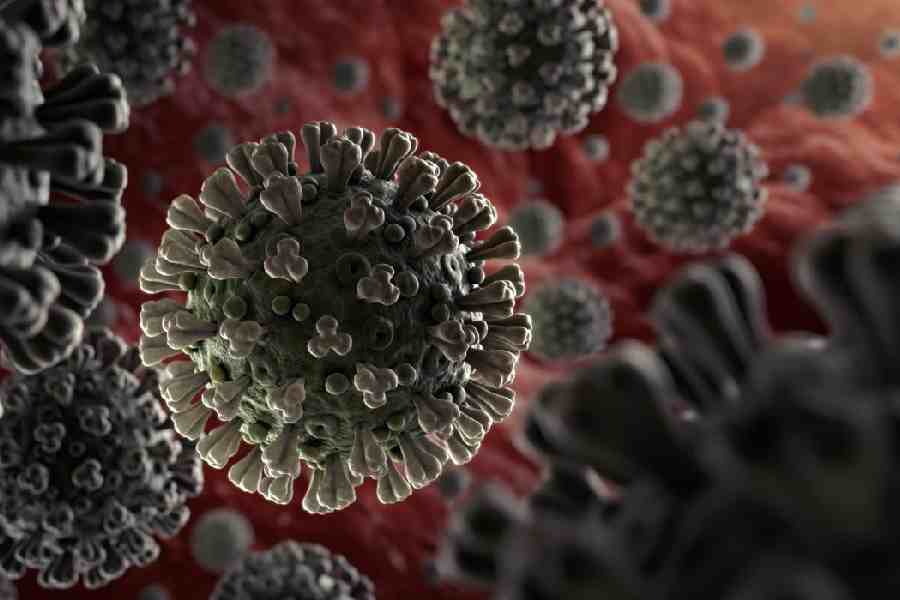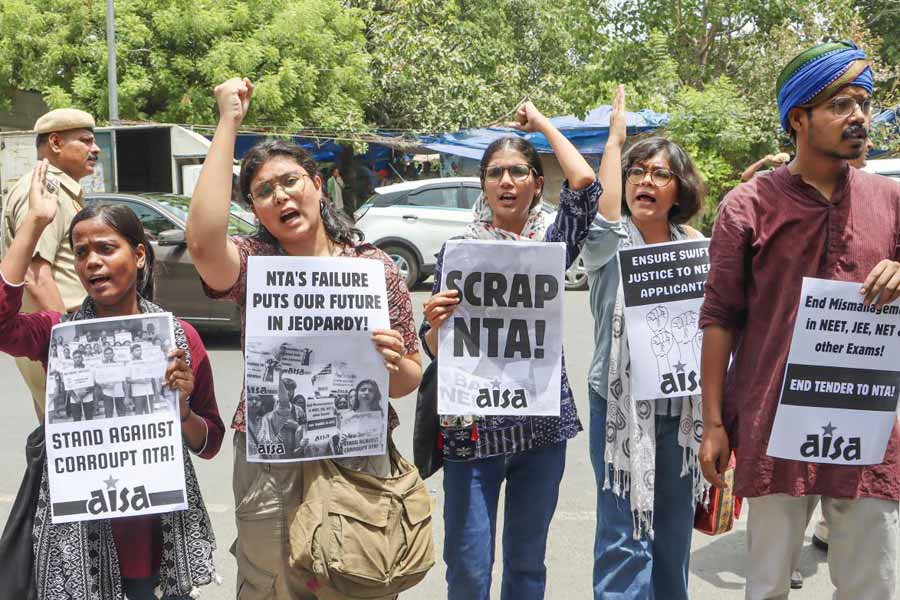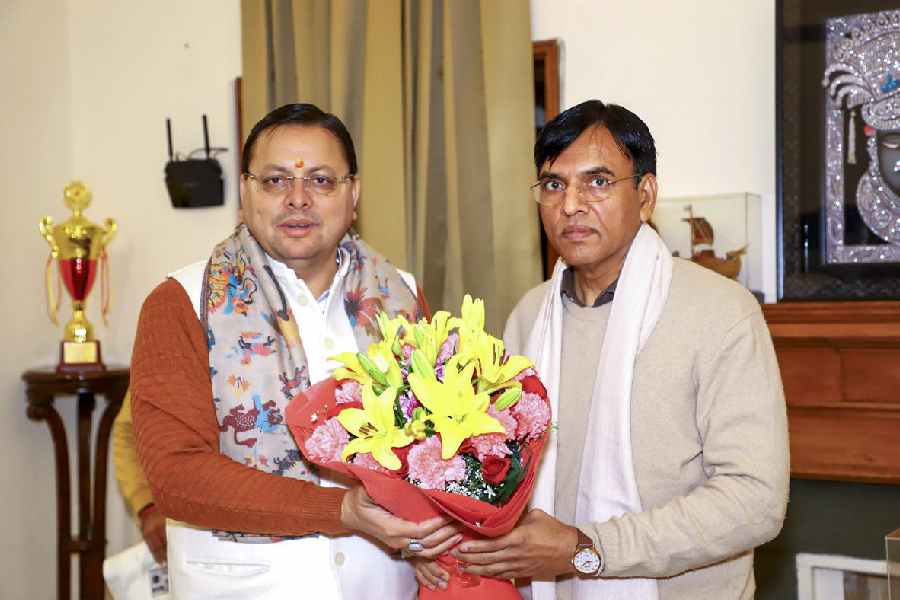Game on
Sir — Marriage is not just fun and games. Perhaps this is why a Bengali groom, who was playing a rousing game of ludo with his friends in the middle of his wedding proceedings, has faced some flak for his cavalier attitude. Yet, could it not be argued that a game of ludo is the perfect preparation for a marriage? Ludo requires thoughtful decision-making, such as choosing which pawn to move and whether to play defensively or go on the offensive. It also teaches patience as players must wait for their turns and adapt their strategies based on the current state of the game. These are all traits needed to make a marriage a happy partnership. One only wishes the groom had chosen to involve the bride in the game instead of playing with just his friends.
Garima Bose, Calcutta
Poor imitation
Sir — The editorial, “Vacuous verse” (Dec 1), on Artificial Intelligence writing poetry was intriguing. AI can only repackage knowledge which mankind has already produced. Unlike the limitless potential of human creativity, AI is dependent on algorithms to process available data; it is bereft of inspiration, imagination and other such abstract human qualities. It can acquire neither human ingenuity nor a poetic mind. This is a great relief for mankind. But scientists are trying to advance AI technology. This might not bode well for humanity in the future.
Soumendra Choudhury, Calcutta
Sir — The failure of lay readers to recognise AI-generated poetry written in the style of some of the greatest poets shows a lack of understanding of poetry. This also points to the need to increase awareness regarding poetry. The current samples of poems written by AI are primitive endeavours. AI will require much more nuanced data and advanced algorithms to be able to pen truly good poems. However, there is a positive aspect to this experiment: it provides clues about just how far AI has come and how diversely it can be used.
Tapes Chandra Lahiri, Calcutta
Sir — Given the increasing apathy towards poetry in present times and the loss of the academic rigour that is necessary to understand literature, it should not come as a surprise that many prefer the ‘vacuous verses’ churned out by AI instead of real and complex poetry. Moreover, merely an understanding of literature is not enough to comprehend poetry. One also needs a robust vocabulary to make sense of verses. Perhaps this is why poetry is a dying art. It might thus be beneficial if AI ends up reinvigorating people’s enthusiasm for it.
Anthony Henrique, Mumbai
Sir — It beggars belief that people assumed that ‘poetry’ churned out by AI could have been written by the likes of Lord Byron or Sylvia Plath. One can only hope that the people who were part of the study in question were not actually acquainted with the works of the real poets. If this is the quality of work AI produces, there is no reason to fear it will replace anything.
Jane Ghosh, Calcutta
Collective failure
Sir — It is disappointing that the fifth Intergovernmental Negotiating Committee of the United Nations Environment Programme at Busan failed to produce a legally binding treaty to eliminate plastic pollution. The conference was adjourned without the announcement of a date or a place for the next round of talks. The week-long negotiations remained unfruitful as no common ground was found over setting limits on plastic production, phasing out chemicals known to harm human health and restricting single-use plastic products.
The production of plastic has skyrocketed to alarming levels. Less than 10% of the half billion tonnes of plastic waste produced annually is recycled. Instead of merely recycling plastic, a reduction in plastic production is needed to salvage the situation. It is wishful thinking that we can eliminate plastic pollution just by relying on recycling.
G. David Milton, Maruthancode, Tamil Nadu
Sir — The recently-concluded conference in Busan failed to reach any consensus despite multiple rounds of negotiations. It seems like countries are still not resolute in their decision to address the plastic problem. Without policy changes, plastic pollution can increase by 70% by 2040. The Busan meeting is now part of a long list of ineffective summits that promised to bring about better environmental policies only to end up being unsuccessful.
Kirti Wadhawan, Kanpur
Sir — All eyes were on the Busan summit where a ‘Global Plastics Treaty’ could have been formulated. The production of plastic uses up an enormous amount of fossil fuels and releases greenhouse gases. Furthermore, plastics have a deadly effect on the human body, leading to diseases like cancer. The conference should have at least organised funds to manage this problem.
Arka Goswami, West Burdwan
Tired minds
Sir — Although the Industrial Revolution may have been one of the most important chapters of human history, many people like Charles Dickens saw it as a dark period when capitalists squeezed the last penny out of the working class. Industrialists also siphoned off wealth from colonies like India to fund the revolution. Karl Marx observed this human suffering and wrote his book, Das Kapital.
The ideologies of Marx and Dickens can also be felt by modern employees who work for long hours and give up on their social lives. Instead of receiving adequate compensation in return, they suffer from job insecurity and stress (“Worked to death”, Dec 2). India must adopt European models that offer a better work-life balance by enacting liberal labour laws.
H.N. Ramakrishna, Bengaluru











